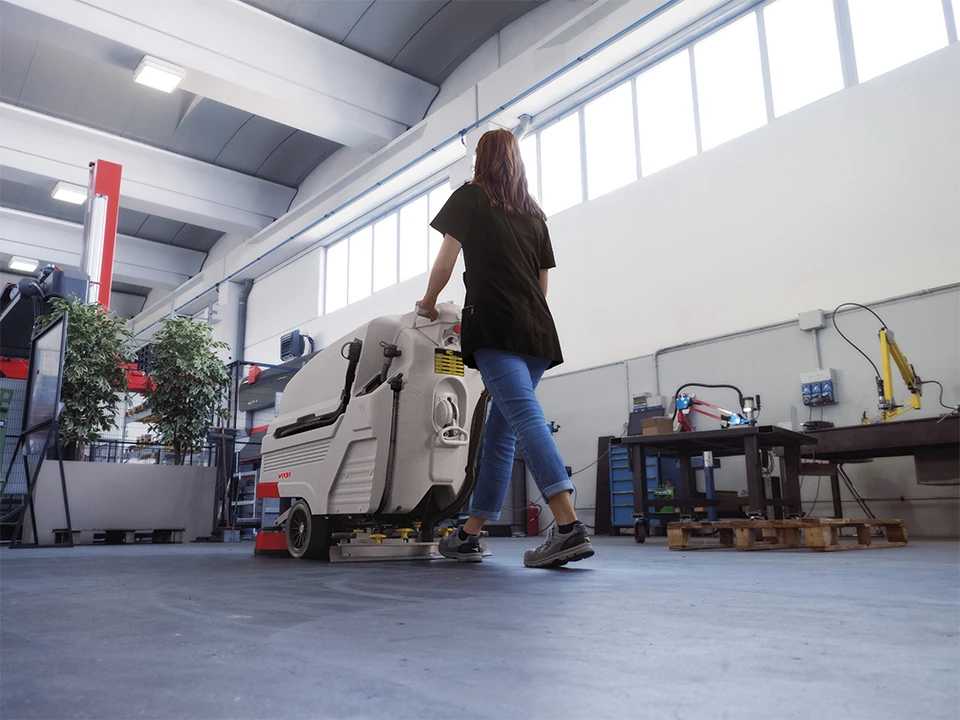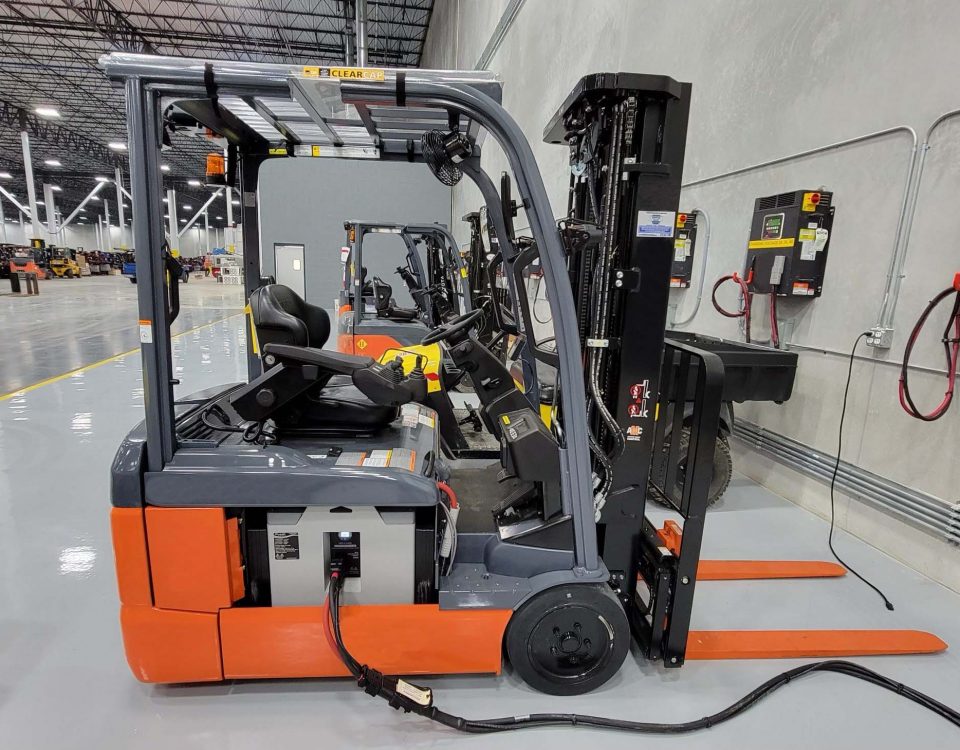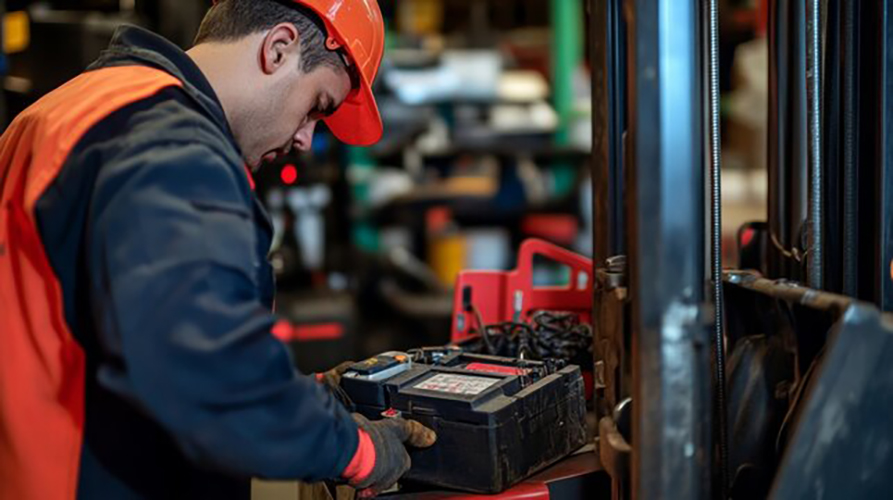In modern commercial cleaning, floor scrubbers are essential machines, playing a vital role in maintaining cleanliness across large spaces like warehouses, shopping centers, and hospitals. However, the performance of these machines is significantly impacted by the type of battery powering them. Choosing the right battery technology can make a substantial difference in a scrubber's efficiency, durability, and cost-effectiveness.
Battery Technology and Scrubber Efficiency
The type of battery used in a floor scrubber greatly influences its performance metrics such as run time, power output, and overall operational costs. Floor scrubbers typically rely on deep-cycle batteries that can handle long periods of use and frequent recharging, but not all battery technologies perform equally in this demanding environment.
Understanding the role that batteries play in floor scrubbers allows facility managers and cleaning teams to make informed decisions that enhance operational efficiency. From minimizing downtime to reducing maintenance needs, the battery technology behind the machine is crucial to ensuring a smooth and cost-effective cleaning operation.
Performance Metrics: Run Time, Power Output, and Maintenance
Three major performance metrics define the impact of battery technology on floor scrubbers: run time, power output, and maintenance requirements.
-
Run Time: A scrubber’s run time depends on how long the battery can hold a charge. Traditional lead-acid batteries typically offer shorter run times compared to newer lithium-ion solutions, which last longer between charges. For operations requiring long cleaning sessions, longer run times can significantly increase productivity.
-
Power Output: Power output influences how effective the scrubber is at cleaning tough stains, handling uneven surfaces, and maintaining a consistent performance level throughout the cleaning process. Lithium-ion batteries offer more consistent power output, whereas lead-acid batteries may experience performance drops as they drain.
-
Maintenance Needs: Maintenance is a major consideration when choosing a battery type. Lead-acid batteries often require regular water checks and cleaning of the terminals to prevent corrosion, while lithium-ion batteries are generally maintenance-free. For teams looking to minimize upkeep and extend the lifespan of their equipment, lithium-ion batteries offer significant advantages.
Comparing Battery Technologies: Traditional vs. Advanced Solutions
The two main battery types used in floor scrubbers are lead-acid and lithium-ion. While lead-acid batteries have been the traditional choice for years, advances in technology have made lithium-ion batteries the preferred option for many industries.
Lead-Acid Batteries
Lead-acid batteries, both flooded and AGM (Absorbed Glass Mat), are widely used due to their relatively low upfront cost. However, they come with several drawbacks:
- Shorter Lifespan: Lead-acid batteries typically have fewer charge cycles compared to lithium-ion, which means they may need to be replaced more frequently.
- Heavier Weight: Lead-acid batteries are bulkier and heavier, which can affect the overall mobility and ease of handling the floor scrubber.
- Maintenance Requirements: Regular maintenance, such as checking water levels in flooded lead-acid batteries, is required to keep them functioning optimally.
While these batteries are still prevalent in many settings, their disadvantages in terms of maintenance and overall longevity make them less attractive compared to more advanced options.
Lithium-Ion Batteries
Lithium-ion batteries have quickly become the market leader for floor scrubbers due to their superior performance in several key areas:
- Longer Run Times: Lithium-ion batteries hold a charge longer than lead-acid, allowing for extended periods of cleaning without the need for frequent recharging.
- Faster Charging: One of the most notable advantages of lithium-ion technology is its faster charging time, which minimizes downtime and maximizes productivity.
- Lightweight: Lithium-ion batteries are lighter, making the floor scrubber easier to maneuver, which is particularly beneficial in large facilities or spaces with frequent obstacles.
- No Maintenance: Unlike lead-acid batteries, lithium-ion batteries are virtually maintenance-free, meaning there’s no need for water checks, cleaning, or worry about corrosion.
Though lithium-ion batteries tend to have a higher upfront cost, their long-term benefits, including lower maintenance and longer battery life, often make them the most cost-effective option over time.
Key Considerations When Choosing the Right Battery for Your Floor Scrubber
Selecting the right battery technology for your floor scrubber depends on several factors, including the size of the area being cleaned, the frequency of use, and budget considerations.
-
Operational Needs: If your facility requires frequent, long-duration cleaning sessions, a lithium-ion battery may be the best choice due to its extended run time and faster recharge capabilities. On the other hand, smaller spaces or operations with shorter cleaning needs may find that a lead-acid battery offers sufficient performance at a lower initial cost.
-
Budget: While lithium-ion batteries offer numerous performance advantages, their higher price may be a consideration. However, it’s important to weigh the total cost of ownership, which includes not only the upfront cost but also the costs associated with maintenance, replacements, and downtime. Over time, the cost benefits of lithium-ion batteries can outweigh the initial investment.
-
Environmental Considerations: Lead-acid batteries contain hazardous materials and require special disposal procedures, while lithium-ion batteries are more environmentally friendly and generally have a smaller carbon footprint due to their longer lifespan and reduced maintenance needs.
Conclusion: Choosing the Best Battery Technology for Your Cleaning Needs
The battery technology you choose for your floor scrubber will have a direct impact on its performance, operational costs, and ease of use. While traditional lead-acid batteries remain a common choice, lithium-ion batteries are increasingly becoming the preferred option due to their longer run times, faster charging, and reduced maintenance requirements. When considering which battery technology is right for your facility, it’s essential to take into account both immediate and long-term needs.
For facilities looking to optimize their cleaning processes and reduce downtime, investing in advanced battery technology such as lithium-ion can provide significant advantages.
About RICHYE
RICHYE is a professional lithium battery manufacturer known for producing high-quality lithium batteries. Their batteries are trusted across industries for their superior performance, safety, and durability. Whether it's the high energy efficiency, long lifespan, or competitive pricing, RICHYE batteries are a reliable choice for any operation seeking top-tier performance in demanding environments.




